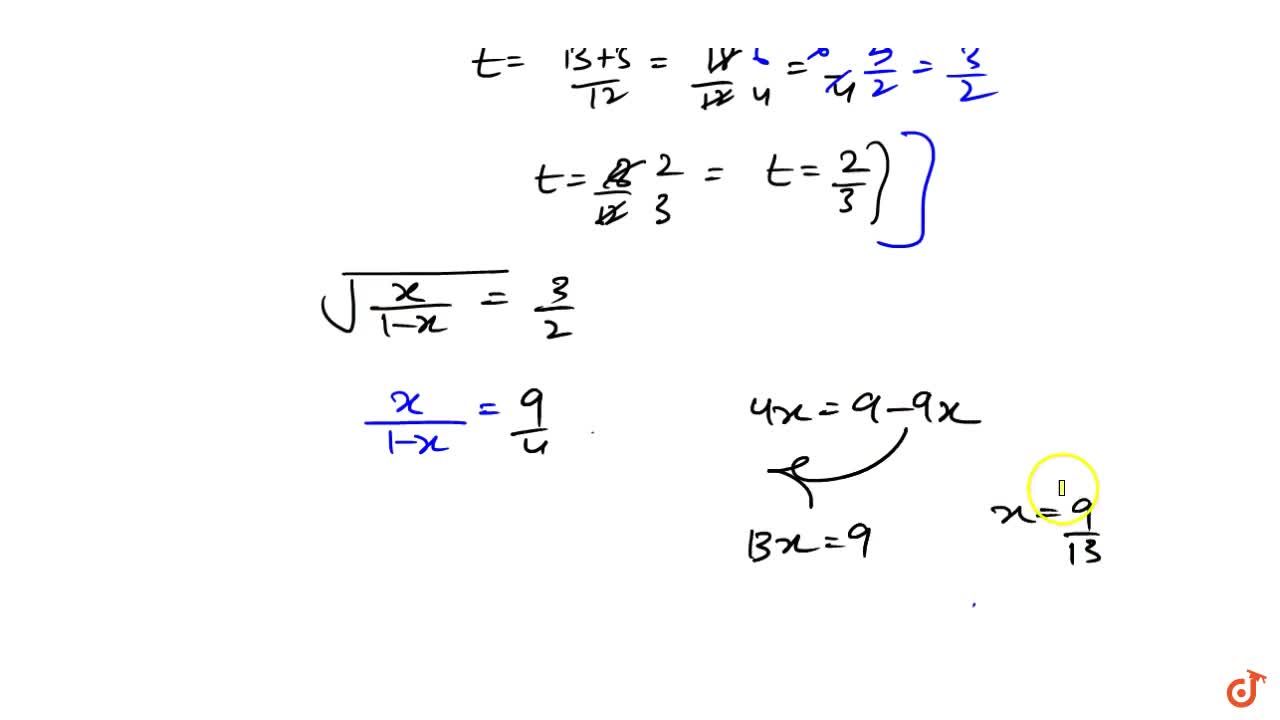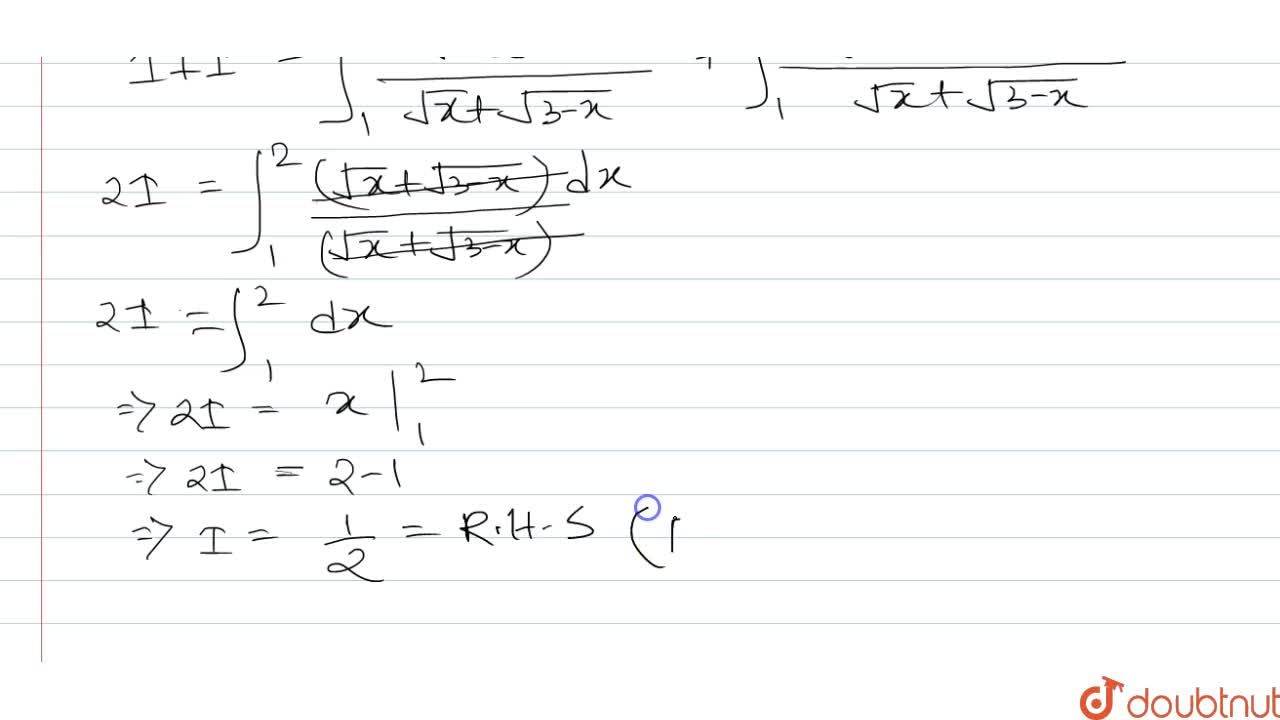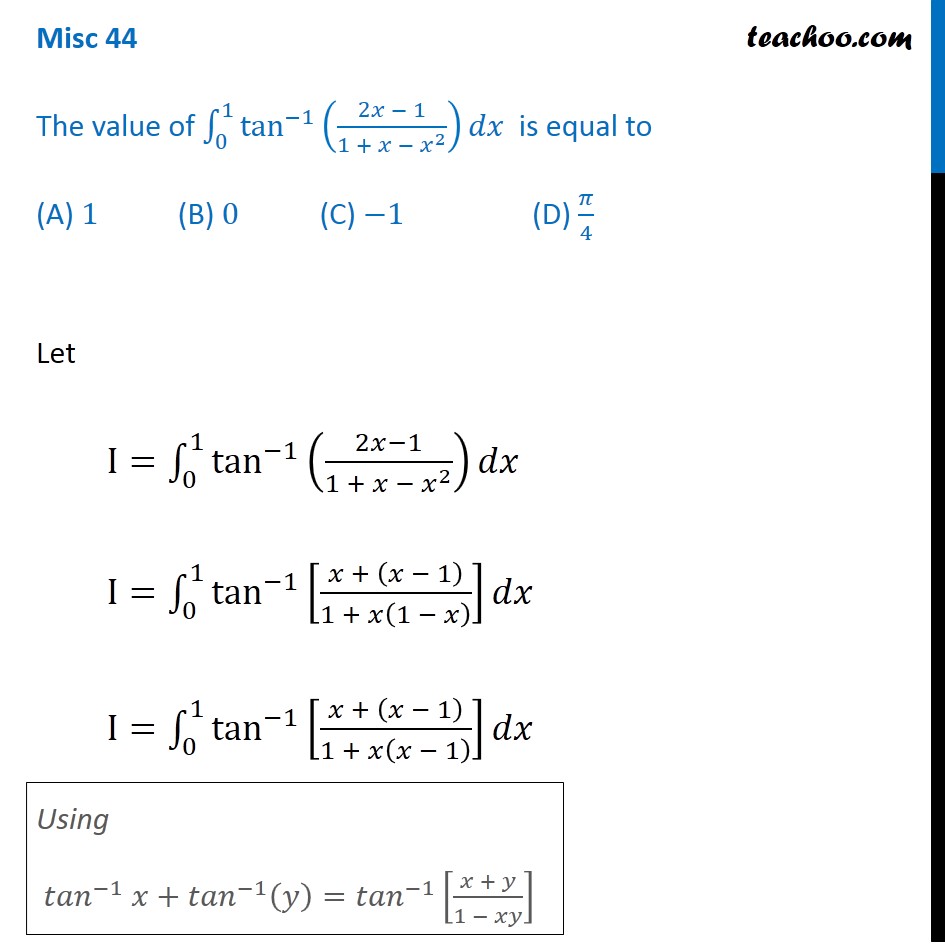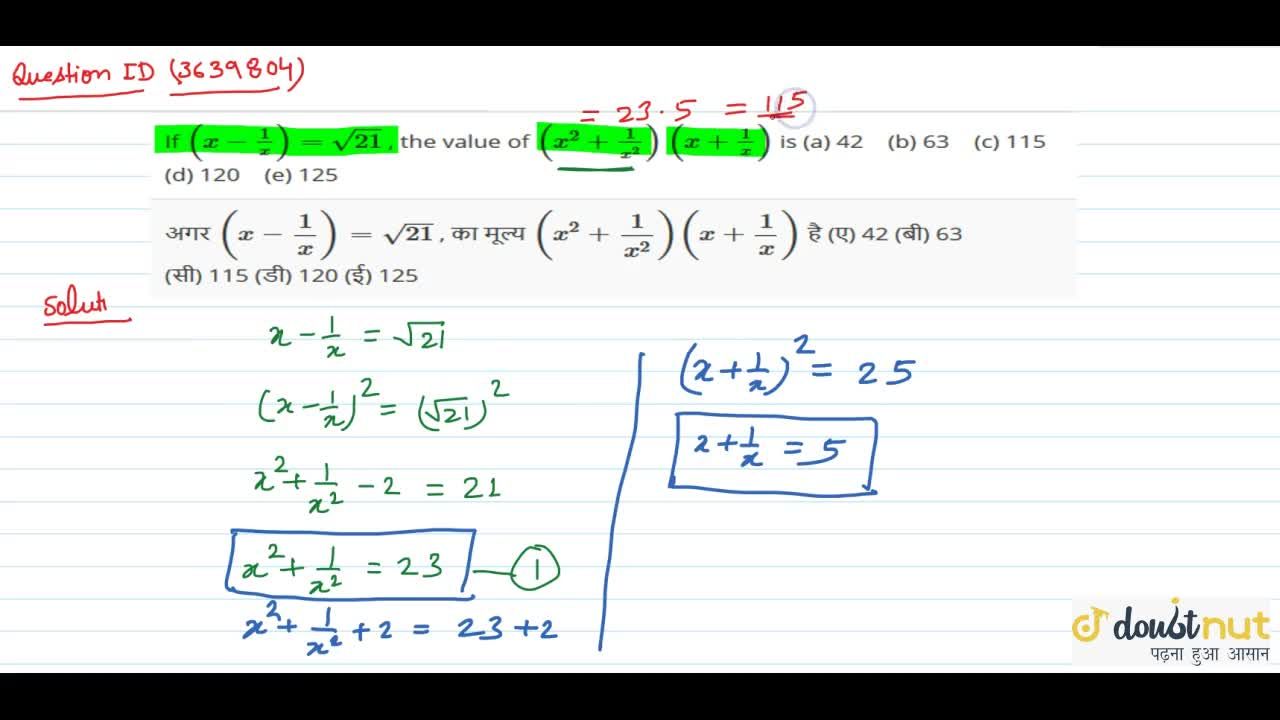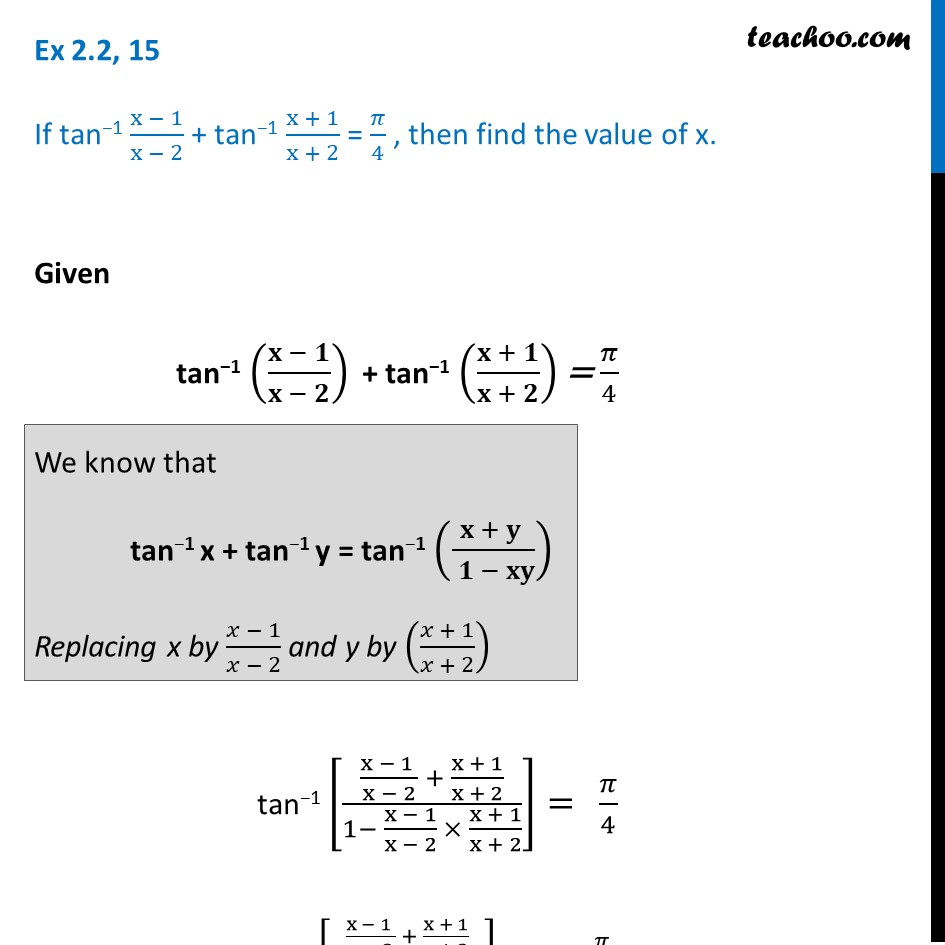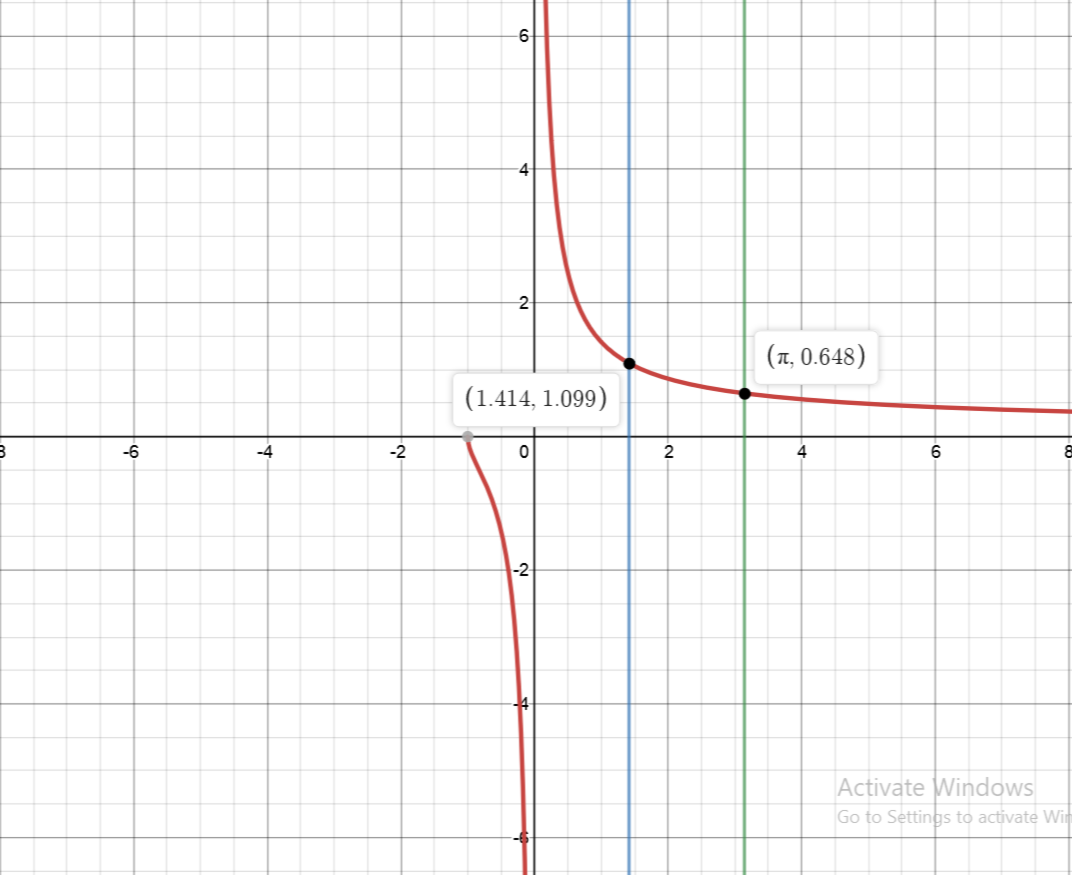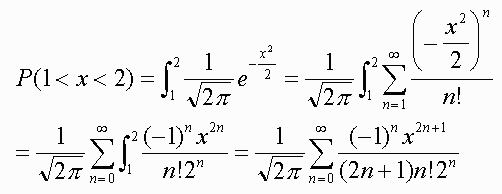
recurrence relations - How to solve the integral $I_n=\int_{0}^{1}x^n\sqrt{1 -x}$? - Mathematics Stack Exchange

If `x\ sqrt(1+y)+y\ sqrt(1+x\ )\ 0,\ -1<x<1,\ x!=y ,` then prove that `(dy)/(dx)=-1/((1+x)^2) - YouTube

y=tan^(-1)((sqrt(1+x^2)+sqrt(1-x^2))/(sqrt(1+x^2)-sqrt(1-x^2))),w h e r e` `-1 ltx lt1,x!=0` - YouTube
If ∫ 1/x√((1-x)/(1+x)) dx = g(x) + c, g(1) = 0, then g(1/2) is equal to: - Sarthaks eConnect | Largest Online Education Community
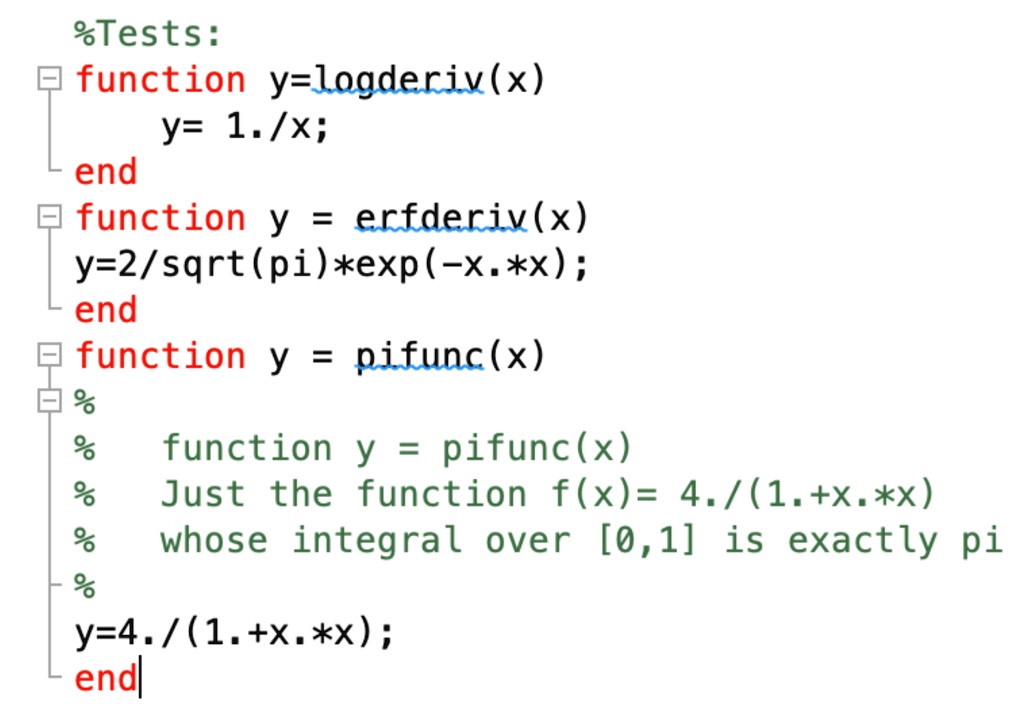
SOLVED: sTests: function y-logderiv(x) y= 1./x; end function y = erfderiv(x) y-2/sqrt(pi)*exp(-X.xx) ; end function y = pifunc(x) % % function y = pifunc(x) % Just the function f(x)= 4./(1.+X.*x) % whose




